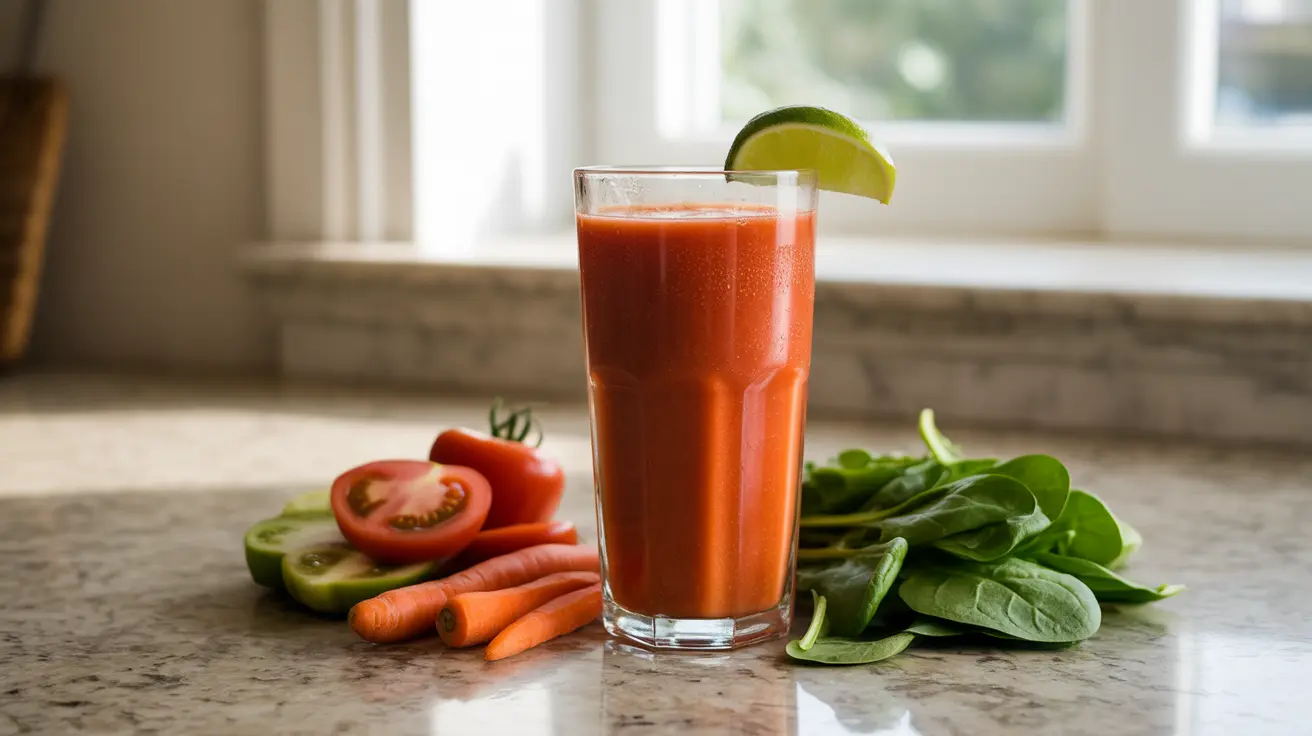Many health-conscious individuals turn to V8 juice as a convenient way to boost their vegetable intake. This vegetable juice blend, featuring tomatoes and seven other vegetables, has been a popular choice for decades. But the question remains: is V8 good for you, and can it effectively supplement your daily vegetable needs?
Understanding V8 Juice Composition
V8 original vegetable juice contains a blend of tomatoes, carrots, celery, beets, parsley, lettuce, watercress, and spinach. Each 8-ounce serving provides two servings of vegetables, making it an appealing option for those struggling to meet their daily vegetable requirements.
Nutritional Profile of V8
A standard 8-ounce serving of original V8 juice contains:
- Calories: 50
- Protein: 2 grams
- Carbohydrates: 10 grams
- Sodium: 640mg
- Potassium: 640mg
- Vitamin A: 40% Daily Value
- Vitamin C: 80% Daily Value
Benefits of Drinking V8 Juice
Vitamin and Mineral Content
V8 juice offers significant nutritional benefits, particularly in terms of vitamins A and C, which support immune function and eye health. The juice also provides potassium, essential for heart health and blood pressure regulation.
Convenience Factor
For busy individuals, V8 offers a quick way to incorporate vegetables into their diet. It's portable, requires no preparation, and can be consumed on the go, making it a practical solution for increasing vegetable intake.
Potential Drawbacks and Considerations
Sodium Content Concerns
The most significant concern with original V8 juice is its high sodium content. With 640mg per serving, one glass contains about 28% of the recommended daily sodium intake, which may be problematic for individuals monitoring their blood pressure or sodium intake.
Fiber Content
While V8 provides many nutrients, it contains significantly less fiber than whole vegetables. The juicing process removes most of the beneficial fiber that aids digestion and promotes feelings of fullness.
Making Healthier Choices with V8
Low-Sodium Options
For those concerned about sodium intake, low-sodium V8 varieties contain about 140mg of sodium per serving, making them a better choice for individuals watching their salt intake.
Best Practices for Consumption
To maximize the benefits of V8 juice while minimizing potential drawbacks:
- Choose low-sodium varieties when possible
- Limit portion sizes to 8 ounces per day
- Use V8 as a supplement to, not replacement for, whole vegetables
- Consider diluting with water to reduce sodium intake
Frequently Asked Questions
Is V8 vegetable juice a healthy way to increase my daily vegetable intake? Yes, V8 can be a healthy supplement to your vegetable intake, particularly when choosing low-sodium varieties. However, it should not be your only source of vegetables.
How does V8 juice compare nutritionally to eating whole vegetables? While V8 provides many vitamins and minerals, it contains less fiber than whole vegetables and may have more sodium. Whole vegetables offer better satiety and more complete nutritional benefits.
Is the sodium content in V8 juice a health concern? The sodium content in original V8 (640mg per 8-ounce serving) can be concerning, especially for those watching their blood pressure or on sodium-restricted diets.
What are the benefits of choosing low-sodium V8 over the original version? Low-sodium V8 contains about 140mg of sodium per serving compared to 640mg in the original, making it a better choice for those monitoring sodium intake while still providing the same vitamins and minerals.
Can drinking V8 juice replace eating fresh vegetables for fiber and nutrients? No, V8 juice should not completely replace whole vegetables in your diet. While it provides many nutrients, it lacks the fiber and some beneficial compounds found in whole vegetables.
When used thoughtfully as part of a balanced diet, V8 can be a convenient way to supplement your vegetable intake. However, it's important to be mindful of sodium content and remember that whole vegetables should remain the foundation of your vegetable consumption.




